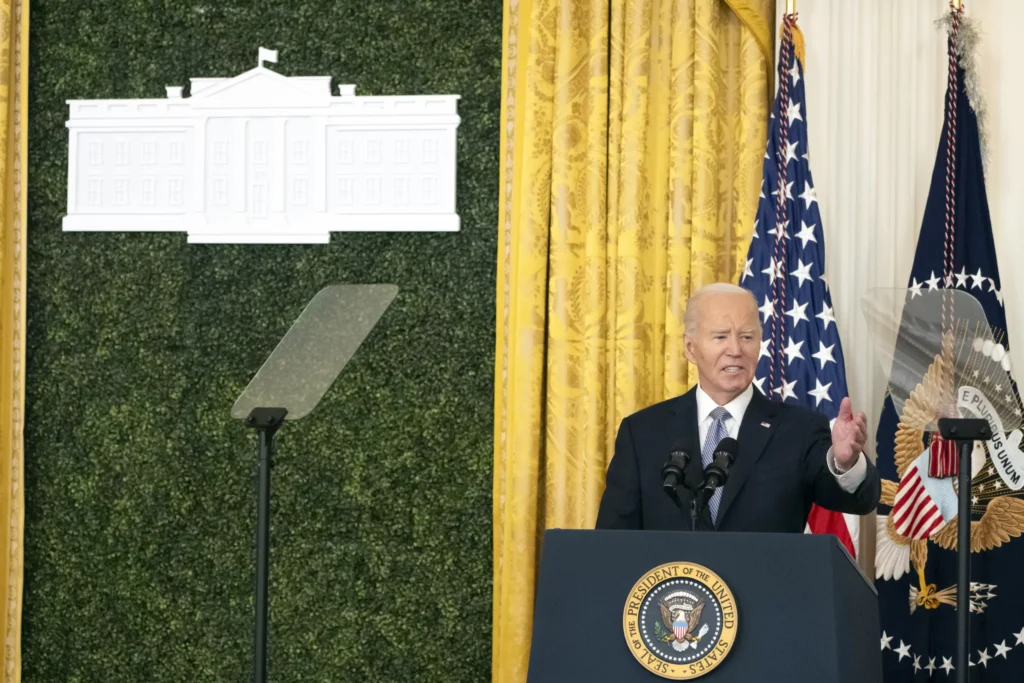President Joe Biden governs like his word matters on the world stage. So, too, have his predecessors. Increasingly, however, the world ignores the United States. Some academics and diplomats talk about the rise of near-peer competitors in a multipolar world.
Adversaries such as China, Russia, and Turkey and even allies such as France may relish cutting Washington down to size, but the main reason for the decline of America’s diplomatic cachet is self-inflicted: America’s word no longer means much. American policymakers govern as if history restarts every four years, the world believes American spin, or Washington deserves a blank slate.
International actors are not so gullible, though. They remember lies. In 1994, for example, the U.S., Russia, the United Kingdom, and Ukraine signed the Budapest Memorandum that had Ukraine forfeit its legacy Soviet nuclear weapons in exchange for security guarantees. When Russian forces invaded Crimea two decades later, the U.S. did nothing. Ukrainian officials should regret giving up their nuclear weapons, perhaps the only way they alone might have deterred Russian irredentism and imperialism.
In 2009, shortly after Hillary Clinton became secretary of state, she sought to assuage America’s Arab allies about possible Iranian nuclear weapons. “We want Iran to calculate what I think is a fair assessment: that if the United States extends a defense umbrella over the region … it is unlikely that Iran will be any stronger or safer because they won’t be able to intimidate and dominate as they apparently believe they can once they have a nuclear weapon,” she said.
What Clinton saw as a confidence-building statement actually shattered the confidence of both Arab allies and Israel. After all, they pointed out, had not the U.S. repeatedly promised it would never allow the Islamic Republic to build nuclear weapons in the first place? America’s East Asian allies could say the same thing about decades of American commitment never to tolerate a nuclear North Korea only to have the George W. Bush administration do just that.
Perhaps the most public broken promise was former President Barack Obama’s “red line” on Syria’s chemical weapons use. While Obama’s team subsequently used media surrogates to suggest he made no explicit promises, the fact that his team had back-briefed journalists and think tankers about his red line when he first pronounced it undercut the spin.
Less publicly, Obama broke promises to the Czech Republic and Poland that the preceding Bush administration made in exchange for hosting anti-ballistic missile radar facilities. The political agreement at the heart of this was no different from that which former President Donald Trump violated when he walked away from the 2015 nuclear agreement. American pundits are right this was not a treaty, but international public opinion does split such hairs. (It would have been better if Trump enforced the nuclear agreement so strictly that Iran, already violating it, walked away.)
The Biden administration has been particularly cavalier with false promises. National security adviser Jake Sullivan brokered a deal to win the release of Hotel Rwanda’s Paul Rusesabagina, a Belgian citizen and permanent U.S. resident whom Rwanda held on terrorism charges. The charges were valid: Rusesabagina not only spoke publicly about using violence to overthrow Rwanda but also had wired money via Western Union to terrorists who slaughtered a number of civilians in a border town. Sullivan said that Rusesabagina would apologize and cease interfering in Rwanda if Rwanda set aside his sentence.
CLICK HERE TO READ MORE FROM THE WASHINGTON EXAMINER
Just last month, though, he pledged regime change in Rwanda “whether through dialogue, elections, or, if necessary, armed struggle.” Once a terrorist, always a terrorist. With Biden making Africa his last trip as president, the White House now seeks further Rwandan assistance and trust. This is delusional after it treated Rusesabagina’s return to terrorism with little more than a shrug. Biden and Vice President Kamala Harris’s repeated commitments to secure the southern border simply complete the insincerity trifecta.
America’s diplomatic decline is not inevitable, and it was not the result of other powers’ rise. Rather, a generation of American leaders made a conscious choice to become the diplomatic equivalent of the world’s used car salesmen, saying what they needed to win short-term agreement with little regard to the damage they did to America’s broader reputation.
Michael Rubin is a contributor to the Washington Examiner’s Beltway Confidential blog. He is director of analysis at the Middle East Forum and a senior fellow at the American Enterprise Institute.
Source link : http://www.bing.com/news/apiclick.aspx?ref=FexRss&aid=&tid=6717bd52220e4554800b53c6e9f0b1ad&url=https%3A%2F%2Fwww.washingtonexaminer.com%2Fopinion%2F3197916%2Famerica-broken-promises-matter%2F&c=6900168890459239924&mkt=en-us
Author :
Publish date : 2024-10-22 02:48:00
Copyright for syndicated content belongs to the linked Source.
